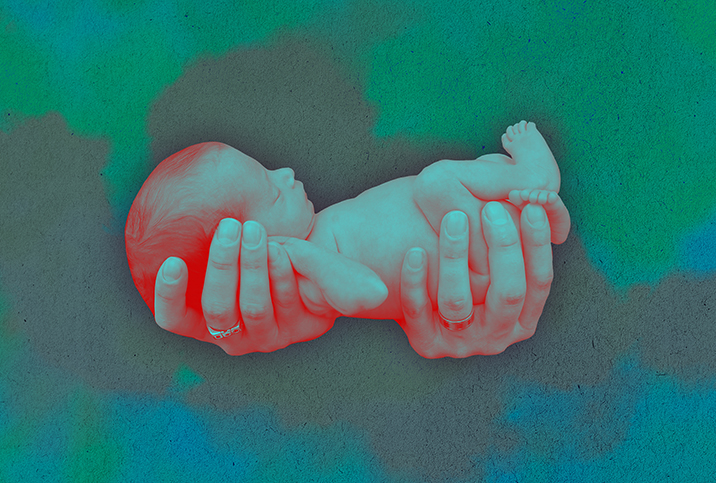The Hurdles of Having a Premature Baby

Welcoming a new baby into the world is exciting and overwhelming for any new parent—whether it's your first baby or your fourth—but all those feelings get magnified when your baby comes early.
In addition to the very real health concerns that often accompany a premature birth, the early arrival can also throw a wrench into the family system. You likely thought you had at least a few more weeks to prepare for and adjust to the changes ahead.
This makes the advent of a preemie baby more challenging than the arrival of a full-term baby, and in more ways than you might expect.
A long hospital stay may be in store
A preterm birth, defined as a birth before 37 weeks gestation, is a very serious health risk. The last few weeks of pregnancy are when the brain, heart and lungs develop more fully to support survival outside the womb. Missing out on those last few weeks means your baby may need constant medical care to stay healthy and alive.
"Typically, within the first couple weeks, the baby may experience trouble with temperature control and metabolism, gastrointestinal problems, and complications with their lungs, heart, brain, immune system and even blood," said Sanam Hafeez, Psy.D., a neuropsychologist and the clinical director of Comprehensive Consultation Psychological Services in New York City. "Many of these issues may be resolved within a relatively short time span."
Premature delivery has quite a few long-term effects, according to Hafeez.
"Preemie babies are at an exceptionally high risk of being born with cerebral palsy because of the lack of adequate blood flow to the developing baby's brain," Hafeez said. "There is also a chance for the infant to suffer from chronic health issues, dental problems and developmental delays that can lead to hearing/vision issues."
Take care of yourself, too
Welcoming a full-term, healthy baby into the world is stressful on its own, but when your baby is fighting to live? That's a next-level stressor for new parents, and it can also take a toll on the family as a whole.
"Watching your baby fight for their life and require constant aid is hard for a parent to witness at any point, especially when the parents can do little to help," Hafeez said. "Many may feel intense anger, anxiety, depression and guilt. Studies have shown mothers of preemies, in particular, tend to have these feelings more than mothers of full-term babies."
First, it's important to understand that feeling overwhelmed, anxious and depressed when faced with such a hard challenge is perfectly normal. You need to be prepared to take care of yourself while also taking care of your new baby.
"Find a solid support system. Allow yourself to have time to bathe, sleep, eat and recover physically and mentally from the birth," Hafeez emphasized. "Remember: If you end up back in the hospital because you aren't taking care of yourself, you won't be able to care for your baby."
Friends and family may not be able to relate
Unless you have a friend or family member who has also had a preterm baby, you may not have anyone you can relate to as you go through this challenge. That's tough because as a new parent, you want to be able to lean on and commiserate with others who have been through the same circumstances.
"Preemie parents are likely alone amongst most of their friends and family in having gone through this experience and, thus, cannot seek the same advice and comfort from those around them," said Amber Samuel, M.D., medical director at Obstetrix Maternal-Fetal Medicine Specialists of Houston. "They also can't control the situation or environment of their new child, which can multiply a feeling of helplessness as a parent."
While you can't necessarily plan ahead for the event of preterm birth, if you have a high-risk pregnancy and you or your doctors are concerned you might go into labor early, it's worth asking for some support and assurance in advance.
Samuel said that when one of her patients is expecting a preterm birth, her practice offers tours of the space so parents can get comfortable in advance and also provides resources for support groups of parents in similar situations.
"Seeking support from hospital- or community-based groups of similar parents can be helpful to recreate the normal peer group that can help a family through the first days," she said.
Preventing infections is important
It's important for all new parents to protect newborns from risks of infection. A full-term baby's immune system isn't fully developed for the first six months of life, but for preemies, the risk is particularly grave. The infant's lungs may not be fully developed, so catching a simple cold or virus could be life-threatening.
"We strongly advise preemie parents to be more vigilant about handwashing, masking and taking appropriate precautions to decrease all respiratory viruses and exposures for the newborn," Samuel said.
This guideline doesn't just apply to the parents, but also to anyone who will be around the infant. You may need to set rules about who can touch the child, the type of interactions you're comfortable with, and how long it will be before you introduce your new baby to family and friends. Guidelines like these may come as a shock to family members who don't understand the heightened risk, but for the health of your preemie, it's particularly important.
Your home life may get upended
When a preterm birth takes place, the baby isn't always the only one affected. The mother is often dealing with her own challenges. High-risk labor affected by preeclampsia or gestational diabetes could put mama's health in jeopardy. Likewise, an accident or illness contributing to the preterm birth often means mom is dealing with other health challenges or injuries.
"Many mothers have additional medical complications that require prolonged hospital stays that create issues for care of other children and an inability to work prior to a previously planned maternity leave," said Barbara Carr, M.D., a neonatologist and the medical director at Pediatrix Neonatology of Missouri. "This can create significant emotional and financial stressors for parents and couples. Fathers and partners often feel anxious. They experience stress due to a perceived inability to do anything to help mother or baby and often end up taking unexpected time off of work."
In the event of unexpected preterm labor, there's not much you can do to prepare, but it's important to call on every resource available and accept help where you can.
"Check with your employer to see if remote work is an option or if banked leave is available to assist with financial stressors," Carr suggested. "Practice meditation, breathing techniques or journaling, which may all assist with stress and anxiety. Check with your church, neighbors and other friends to see if any day-to-day assistance can be obtained. Accept help from others as offered."
Trust your instincts as a parent
Even if you're a first-time parent, you know your baby better than anyone else, Carr emphasized. You may have a lot of doubts about what to do or not do with your new baby, but if something feels off, listen to your inner voice.
"Decreased feeding, a lethargic baby and any breathing difficulties should be evaluated. Breathing difficulty may present as the baby consistently breathing fast, flaring of the nose, having retractions, [i.e.,] the skin between or under the ribs moving in and out, head bobbing or dusky color change," she said. "Seek help if you have concerns—don't take no for an answer."
Also be aware that a low body temperature, rather than a high one, could be a sign of illness that a doctor should check. Carr explained that preemies may have a hard time regulating their body temperature, so be vigilant about monitoring changes in hunger, energy, temperature and breathing.
Prepare for ups and downs
When doctors are assessing the development of your child's organs and their need for assistance and intervention, especially in the early days, it's easy to get bogged down in a million details.
"There are going to be ups and downs. [Doctors] will be tracking a lot of markers of health, and some days will be great and some days will feel like a step backward," Samuel said. "It's important, because of this, to try not to obsess over the details but to focus on the bigger picture and goals."
Let your doctors do their jobs, even when it feels stressful.
"Allow the care team to monitor every fine detail, because that level of anxiety is almost never helpful to a parent, their child or their family," Samuel added.
Use your resources
While you may feel alone in your circle of family and friends, know you're not the only parent to ever face these very real fears and challenges.
And know that there are resources available for parents in your situation. Hafeez suggested reaching out to organizations such as March of Dimes, Graham's Foundation and Hand to Hold. You might also check with your employer, hospital or local nonprofit groups to see if financial assistance or other resources are available to parents with a child in the hospital.
Just remember, for all the challenges and heartaches you may face in the first weeks and months of your baby's life, there will be so much joy and love as well. The good days will feel all the better to you knowing how hard the bad days have been.


















